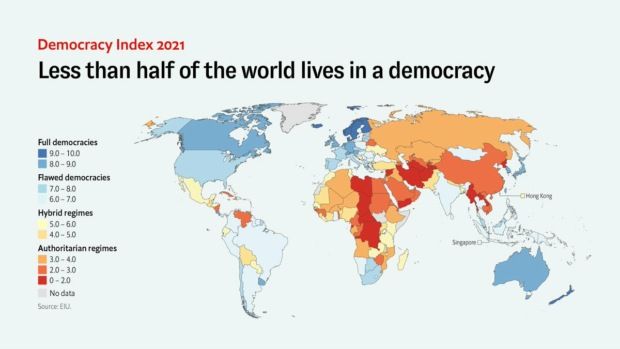News
Denmark ranks high on democracy index
This article is more than 3 years old.
Despite top 10 showing the country still lags behind its Nordic brethren in the Economist Intelligence Unit report

It’s an increasingly fragile situation out there (photo: Pixabay)
Last month Denmark was ranked as the least corrupt country in the world by the annual corruption index published by Transparency International.
Now the country is back at the top of the charts again, this time securing a top-10 ranking in the 2021 Democracy Index published by Economist Intelligence Unit (EIU).
Denmark ranked sixth overall on the index, which rates countries based on five central categories: electoral process and pluralism, the functioning of government, political participation, political culture, and civil liberties.
Being ranked sixth overall might be a solid showing for Denmark, but not compared to its Nordic neighbours.
Norway topped the index, followed by New Zealand, Finland, Sweden and Iceland. Denmark, Ireland, Taiwan, Australia and Switzerland completed the top 10.
READ ALSO: Denmark again the least corrupt country in the world
Downward trajectory
Democracy took a hit last year from a global perspective as just 21 countries (representing 6.6 percent of world population) had what EIU classified as full democracies.
In last year’s index, that figure was 23 countries (8.4 percent of the world population).
Similarly, the share of the global population living in some form of democracy also dropped from 49.4 to 45.7 percent compared to last year.
The index divided countries into four groups: full democracies, flawed democracies, hybrid regimes and authoritarian regimes (see image below).
Over a third (35.3 percent), including Russia and China, were classified as authoritarian regimes, while 31.7 percent, including the US, France, Spain and Italy, were labelled as being flawed democracies. Finally, 20.4 percent were categorised as hybrid regimes.
In short, over 87 percent of the world’s countries, accounting for over 93 percent of the world’s population, do not live in a full democracy.
EIU contended that the pandemic in particular has had a negative impact on democracy worldwide.











































